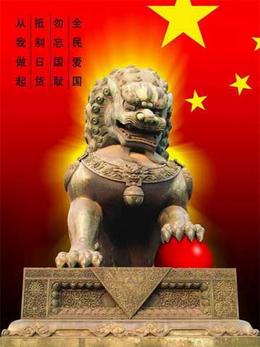An interesting article on the class divisions in China, not only between the rich and the poor, but between the truly middle class and those caught somewhere in between (of whom I know quite a few).
In some ways, China’s money culture is spawning more avaricious – and unchecked – competition. There is a more intense game of keeping up with the Chans, but with no cushions like Rotary clubs, churches, or other civil or volunteer structures. Some 40 percent of wealth is controlled by 10 percent. Young people are getting diplomas in record numbers, but unemployment is 10 percent for those under 30. “Underemployment” is far higher.
Andrew Hu, educated at the University of Washington, says Chinese now have the same problems with stress and expectations as Westerners. “It’s our dream to have an easy life,” he says. “But we can’t because we have to take care of a family and compete with other people in our jobs. The pressure not only comes from family, but other people. We see people with a new car and we say we need a new car.”
“The gap between expectations and salary continues to grow, and psychologically a great number of [Chinese] feel under more pressure,” says Victor Yuan, director of Horizon Market Research in Beijing. “Expectations are high, but so are mortgages. The society is more consumerist, and many people are under heavy family pressure to satisfy demands. Some find it hard to maintain their jobs, let alone talk about expectations.”
Ma Jinliu, who speaks perfect English, got a graduate degree at a European university. But he came home to the same job at a German joint venture he left two years earlier. “I didn’t have a choice. The market is very tough … and I can’t take my money from the housing fund, which is irritating.”
An expectation crisis is less felt among the 3 percent of wealthy urban Chinese who hire drivers, send children to schools overseas, and make more than $1,200 a month. Rather, it is felt in a vastly broader category of urban Chinese who live in the new money culture, but don’t yet have a firm stake in it. They earn between $150 to $350 per month – typical for civil servants, academics, clerks, military officers, engineers, and teachers. Good houses and cars are hard to swing. On TV, they see others doing things they can’t afford. Instead, they sock away savings for health care, knowing the system is not serving them well.
I think a telling phrase is: “the 3 percent of wealthy urban Chinese who hire drivers, send children to schools overseas, and make more than $1,200 a month.” Did you get that? You are among the wealthy urban Chinese if you earn more than $1,200 a month. This is why I’ve referred in the past to the “myth of the Chinese middle class.” Yes, they truly are middle class in China, but by international standards they’re not quite there. So retailers drooling over the prospect of selling Mercedes and Prada bags to China’s wealthy 3 percent may be in for a shock when they learn the actual number who can afford such niceties is far lower than they’d hoped. (Considering China’s huge population, that number is nothing to sneeze at. But the world seems to think 3 percent or more of China’s population is ready to take trips abroad and buy mink coats, and that’s a fallacy. At least for now.)

Comments